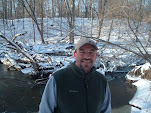Wilderness is not only valuable in our modern world, but it is also invaluable. Now it is important to define the difference between invaluable and valuable, as it can be subtle, however in my opinion, not in this case. Try and think of it this way: valuable usually applies to things that have monetary value, while invaluable usually applies to things that can’t be valued in monetary terms."Solitary, poor, nasty, brutish, and short. — Thomas Hobbes describing man’s life in the state of nature
The smell of a cedar swamp, the aroma of a field of summer grass ripening in the sun, or the sounds of a lake's shore washed by waves hold no monetary or treasure value, but speak a higher language to the human soul, the spirit. Thus, nature holds the invaluable within itself.
Until very recently, humans have not had much time to spend in the appreciation of the profound lessons that nature's primitive places offer them. In the above notable quote worth sharing here once again, Thomas Hobbes eloquently states man’s life in the state of nature is "solitary, poor, nasty, brutish, and short,” thus highlighting the fact that in most ways, human life is filled with the struggle to survive against dangers that wilderness offered—disease, oppressive weather, limited resources, even wild beasts.
Until very recently, humans have not had much time to spend in the appreciation of the profound lessons that nature's primitive places offer them. In the above notable quote worth sharing here once again, Thomas Hobbes eloquently states man’s life in the state of nature is "solitary, poor, nasty, brutish, and short,” thus highlighting the fact that in most ways, human life is filled with the struggle to survive against dangers that wilderness offered—disease, oppressive weather, limited resources, even wild beasts.
Humankind, often working as rugged individuals, carved out a place in the wilderness, and I believe civilized themselves enough to have learned to understand that the remaining pockets of it needed protection.
At least, some people have this attitude, and those people are invaluable to the human race. However, many people in charge of important things still measure only what holds monetary value.
So spend a little time with what is valuable and invaluable, and drink in what those feel like, and what you would need more of in a deep and satisfying way.
At least, some people have this attitude, and those people are invaluable to the human race. However, many people in charge of important things still measure only what holds monetary value.
So spend a little time with what is valuable and invaluable, and drink in what those feel like, and what you would need more of in a deep and satisfying way.






No comments:
Post a Comment